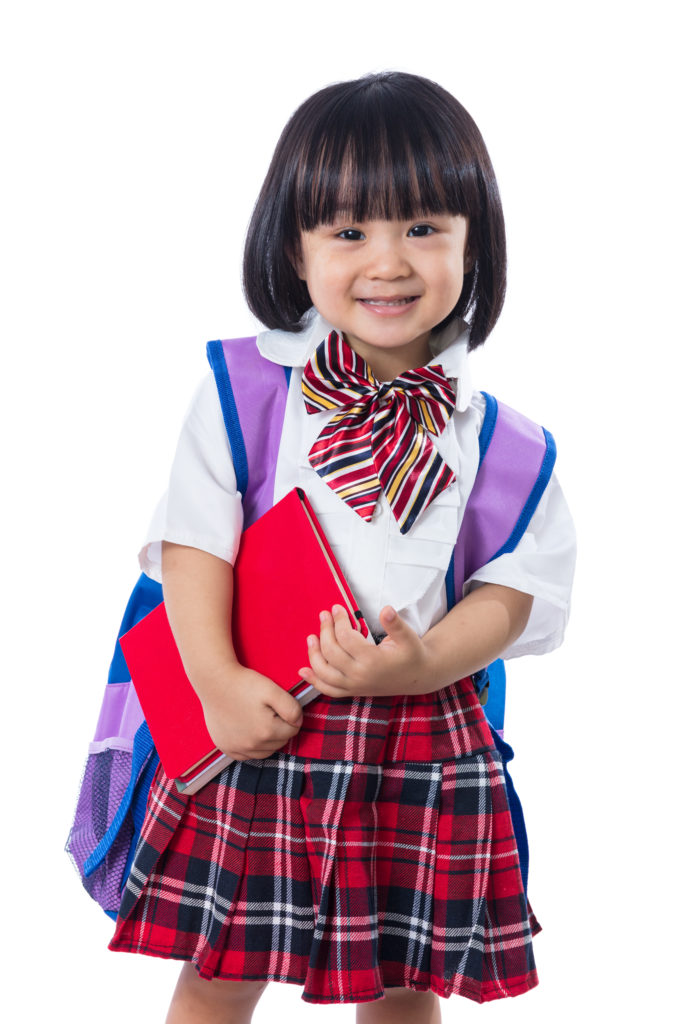
As your child’s first introduction to structured learning, preschool will shape his perception of school-based learning for years to come. Pragmatically, most parents decide on a preferred location first. Some parents like the familiarity of a centre near home while others find it more convenient to place their children at a centre close to their work place. But whichever it is, it’s always good to speak with other parents in your network: neighbours whose children have already been in the school, colleagues if it’s a centre near your office, before making an appointment to visit the centres.
Here are some questions to ask while you’re there.
1. What is the preschool’s pedagogy/learning philosophy?
Montessori… Reggio Emilia… EduDrama… inquiry-based, science-based, literature-based, play-based… each preschool has its own learning philosophy. Find out what it is, and what your child will be learning in class each day. Do you like the programme structure? Are you in sync with the learning approach? What about the curriculum? Speak with the principal, teachers and other parents if possible.
2. What do the fees cover?
Get a breakdown of what the fees are for. Find out if there are additional costs to optional programmes, and if there are any other ad-hoc items that will require payment through the year. Also, how are fees collected? Some centres give various options while others are totally cashless with automatic monthly deductions.
3. How has the centre fared in licensing?
Singapore has stringent criteria for the licensing of childcare and infant care centres. Regular checks by licensing officers also ensure that centres uphold the standards and quality of licensing requirements. Ask for the tenure of the centre’s most recent license, as well as other assessment ratings that the centre has received. The Singapore Pre-school Accreditation Framework (SPARK) recognises pre-schools for their continued efforts in providing quality pre-school education through a rigorous application process, and accreditation provides assurance to parents on the quality of programmes offered.
4. What is the centre’s policy on safety and hygiene?
Entrusting your children’s well-being into the hands of a childcare centre can be daunting, whether you’re a first-time parent or not. From the moment you enter the centre, look around the physical environment of the centre. Is the centre neat? Are electrical wires safely secured out of reach? Are there sharp corners around furniture? Ask for details on how children’s safety and security is ensured. Also find out what the centre’s policy is with regard to sick children, and how the centre deals with outbreaks of illnesses. Childhood diseases such as chicken pox and HFMD are common in group care settings, and a well-prepared centre should have a standard set of operating procedures to put into place when such cases occur.
5. How can I know what my child is learning?
Thanks to technology today, there are a variety of methods that centres can use to keep parents apprised on their children’s progress and development, in addition to face-to-face updates. From texts and videos using social media platforms to dedicated online portals, centres are only bound by their creativity. Still, check with the centre how they keep your child’s information secure: you don’t want his face and details to be accessible to all and sundry.
6. What are the teachers’ qualifications?
Besides having warm and nurturing personalities, your child’s caregivers should have basic qualifications in early childhood education. Higher education in the field provides important theoretical understanding on the behavior of young children and the best approaches to supporting their growth and development. Talk to the teachers themselves if they are available (i.e. they are not in the midst of teaching); ask them about their professional experience and what draws them to working with children.
7. What will my child eat?
Good eating habits are formed when children are young. Ask to see the centre’s menu, and find out more about the methods of cooking. The Health Promotion Board has a Healthy Meals in Pre-schools Programme that encourages pre-schools to provide healthier meals while educating children about eating right. See if the centre is a participant of this programme – it provides a good benchmark as to the quality of food served. If your child has food allergies, or has religious food restrictions, ask how the centre can support his or her special dietary needs.
8. How are children disciplined?
Discipline can be a sticky area for parents. Some parents believe in corporal punishment while others use a more gentle approach. It is inevitable that there will be occasions when your child needs to be corrected; you should be comfortable with the methods adopted by the centre in disciplining children who misbehave.
9. How can I air my grievances?
If you are faced with unexpected issues, it is best to nip problems in the bud and raise them directly with the principal. Sometimes miscommunication occurs, and seeking clarification is most expedient for all involved. Learn about the feedback procedure and how parents can express their concerns. You can also ask about what kinds of feedback the centre has received in the past and how they were dealt with.
Once you have decided on a centre, you need to trust the teachers’ professionalism and that the centre will live up to its promises. Be realistic in your expectations: group care is very different from individualised care, and just like both types of care, has its specific set of advantages and limitations. Clarify concerns before they become serious issues. Allow learning curves to occur. Constant spot checks do not bode well for a long-lasting relationship between parents and the centre as it develops feelings of mistrust on both sides.
Remember that you will be working closely with the centre for the years that your child is there. Your child’s teachers will be your partners in your parenting journey, working together to provide your child with the best experiences and fondest memories of his early years – and you should feel confident you’ve made the right choice.























